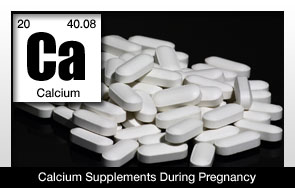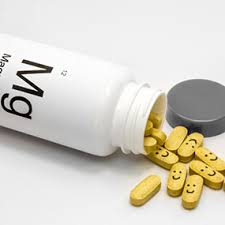In this blog, we will discuss the chromium supplement in pregnancy. Find out here if it is recommended or not for pregnant women to take chromium supplement.
Like iron and copper, chromium is a metal. Since we only need minute amounts to maintain good health, it’s classified as an “essential trace element”. Even though we need just a wee bit of it, it’s extremely important, as it’s needed to regulate blood sugar, especially in pre-diabetics and diabetics and those taking steroids (who often experience high blood sugar as a side effect). It’s effective to combat depression, polycystic ovary syndrome, and out-of-whack cholesterol levels in those taking beta blockers.
Because of the demonstrated uses and efficacy of chromium, it’s a popular supplement for those trying to lose weight, gain muscle, strip fat, gain better athletic performance, and/or increase energy levels. Unfortunately, the research does not support these uses.
There is no known level of toxicity, so it’s likely safe to take during pregnancy and may be valuable in combating or preventing gestational diabetes, since some research shows that oral supplementation can drop the levels of fasting blood sugar and insulin, as well as help insulin work well in diabetics. Some studies involving Type II diabetics showed that oral supplementation with chromium picolinate lowered levels of fasting blood sugar and insulin and improved the function of insulin – but only for those that were malnourished. Those that had adequate nutrition and chromium levels showed minimal benefit.
Although there hasn’t been a direct link, overuse of chromium does possibly have side effects, most commonly skin irritation, headaches, mood swings, mental confusion, nausea/vomiting, and dizziness. High doses can possibly cause, among other things, blood disorders and damage to the kidneys or liver.
Chromium is available through the diet and it’s easy to obtain the amounts needed for daily maintenance. Broccoli is a rich source, since a half cup contains 11mcg. Another good source is grape juice, which has 8mcg per cup. Chromium is also found in whole wheat products, potatoes, herbs such as garlic and basil, orange juice, unpeeled apples (especially Granny Smith), bananas, and green beans.
The big question: “Should I take a chromium supplement in my pregnancy?”
The short answer: “probably not”
As always, you should have a chat with your health care provider before jumping into taking chromium supplements in pregnancy. Odds are, you don’t need them and there are some cases where you really can’t take them. If you have kidney or liver problems, are allergic to chromate or leather, or suffer from a condition such as depression or schizophrenia, chromium can make them worse. If you have diabetes, chromium plus insulin can send your blood sugar too low, so make sure your doctor knows you’re taking chromium, as your insulin dose might need to be adjusted. You’ll definitely want to monitor your blood sugar more closely. NSAIDs are another thing to watch out for – they can cause elevated blood levels of chromium and that can increase the risk of side effects. This includes over-the-counter products such as ibuprofen, naproxen, and aspirin, among others. If you’re already taking cascara or horsetail herbal supplements, adding a chromium supplement can easily lead to overdose.
The current recommended doses for pregnant women under 19 is 29mcg per day while for those 19 and over, it’s 30mcg.
[lamoud_Pregnancy_Calculator]My content[lamoud_Pregnancy_Calculator]





